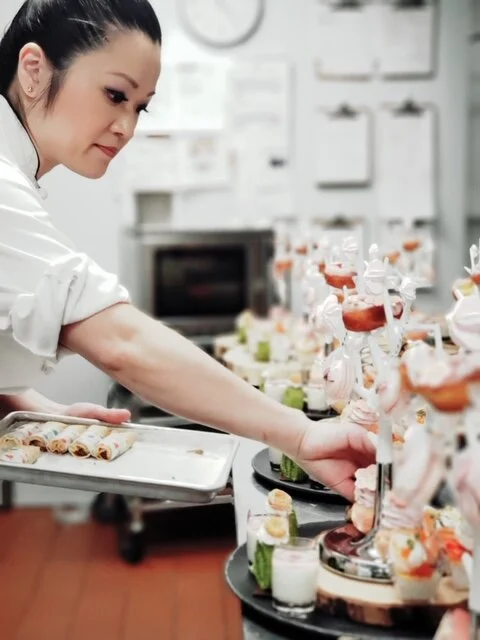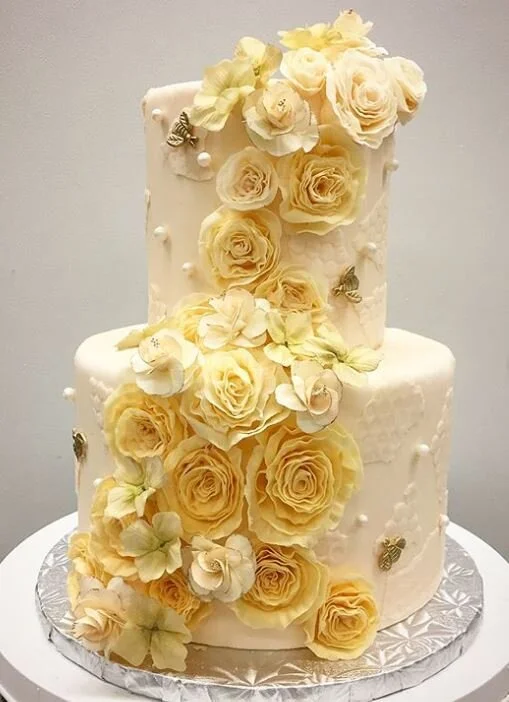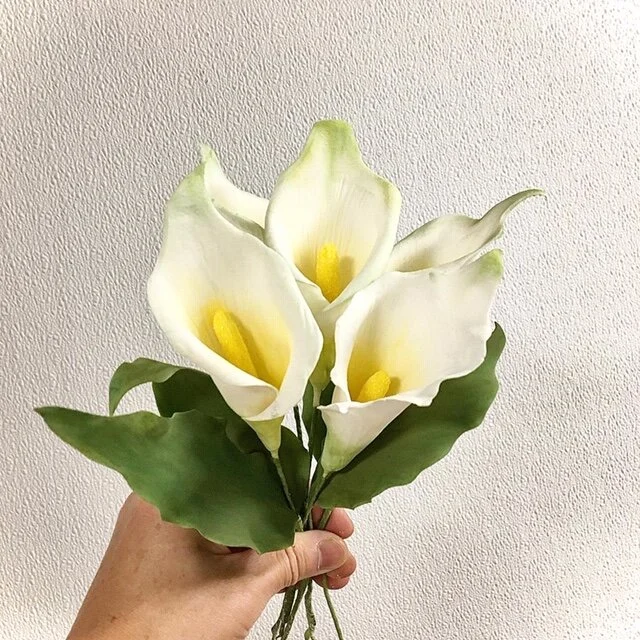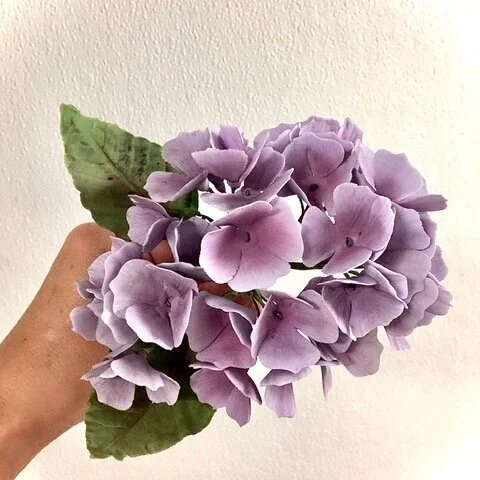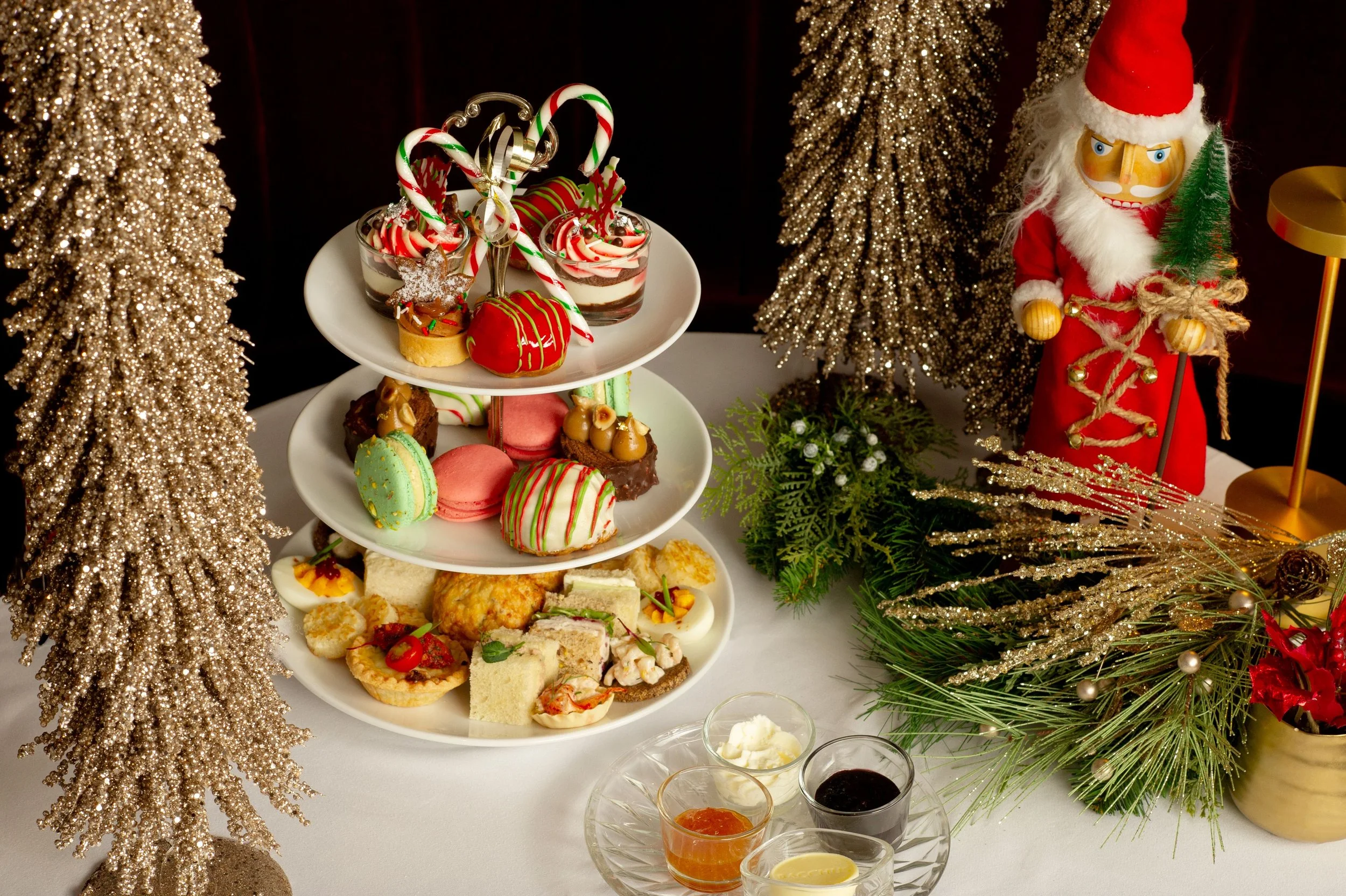Out of tenacity and gum paste come Vancouver pastry chef Fumiko Moreton’s stunning sugar flowers
The local culinary maven has turned unexpected spare time into the opportunity to hone her cake-decorating craft
With its densely petalled blooms, the David Austin rose is the most difficult one to craft out of gum-paste sugar, a skill pastry chef Fumiko Moreton has perfected over the last few months. Photos by Fumiko Moreton
WHAT DO YOU do when you’re one of the most undersung pastry chefs in Vancouver and COVID-19 contributes to your job loss? If you’re Fumiko Moreton, you turn your attention to wedding cakes, adorning the tiered towers with hand-made gum-paste sugar flowers so exquisite and lifelike they could be plucked from an ornamental garden.
Crafting these intricate blooms is a painstaking process. It’s a skill Moreton has honed during a career that spans two decades and includes roles with National Culinary Team Canada in global competitions.
After graduating from Pacific institute of Culinary Arts, Moreton gained experience as a cook at Fairmont Hotel Vancouver Airport before landing at the Terminal City Club hotel, where she worked her way up to lead pastry chef and established its pastry department. In 2017, she joined Trump International Hotel & Tower Vancouver, designing menus for in-room dining, Trump Champagne Lounge, and Mott 32 Vancouver, an independently run modern Chinese restaurant.
Geometric Sakura Chocolate Easter Egg with sugar gum paste cherry blossoms.
The hotel shut down in April due to COVID-19, a move that was expected to be temporary. Then, TA Hotel Management Partnership Ltd., which owns the property, filed for bankruptcy in late August. News that the hotel is closed for good came as a shock.
“The sad part is it happened all of sudden,” Moreton says. “But it is what it is. I just have to move on to the next adventure. I will slowly look for a job because of this COVID situation. Our industry got hit so hard, it’s not easy to find something that I want to do.”
Born in Yosano, a small countryside town near Kyoto, Moreton grew up with an appreciation for food, her grandmother being an early influence and teacher. “My grandma used to grow vegetables as a hobby,” she says. “They weren’t all a beautiful shape, but the taste was awesome due to the freshness. She made her own miso paste, umeboshi [salted pickled plums], and tsukemono [Japanese pickles) as well. Japan is surrounded by oceans, so I always ate fresh seafood. Nothing complicated; always simple but delicious. That’s how I developed my sense of taste.
“My grandma was very good at cooking the simple, traditional way, but my older sister and I were craving for the modern, Western style of cuisine,” she adds. “As soon as my sister turned 14, we volunteered to cook dinner for our family. We bought a cookbook and followed the recipes. Every time we made something, our family said, ‘It’s so good!’ and looked so happy. I loved that feeling, and cooking became my passion.”
Moreton came to Vancouver in 1999 with her former husband. When he moved back to Japan, she decided to pursue that passion and enrolled in culinary school. She learned classic French cooking, with a focus on three-course meals. When it comes to pastry, she is largely self-taught.
Upon joining the Terminal City Club in 2003, for instance, she started out making appetizers and desserts. “I was a very motivated rookie cook at that time, so I asked the chef if I could prepare some banquet desserts as well,” she says. “I didn’t have too much pastry skill, but I bought a pastry art book—The Professional Pastry Chef: Fundamentals of Baking and Pastry by [certified master pastry chef] Bo Friberg—and studied on my own. My teacher for pastry was this book and guests’ reactions.
“There was no Google or YouTube,” she says. “I just loved being creative and making people be happy and go ‘wow’.”
Moreton went on to complete several speciality courses in the U.S, three- and four-day intensive training sessions in chocolate centrepieces, sugar centrepieces, and wedding cakes.
Among her standout creations at Trump International Hotel & Tower Vancouver were a geometric chocolate-sakura Easter egg and an elaborate menu for its Sakura (Cherry Blossom) Afternoon Tea. The latter featured savoury and sweet items like red shiso and yuzu scones, sushi pockets, black-sesame cream puffs, and sakura-mochi dango (skewers).
Matcha is one of her favourite ingredients. She’s extremely selective about the type she uses, sourcing an organic form of Japan’s oldest green tea, which is often used for ceremonial purposes, from Tsu-En in Uji, Kyoto. “This tea shop is very traditional, established in the year 1160, with 860 years of history,” Moreton says. “It keeps its beautiful aroma and taste. I make matcha tiramisu, sablé cookies, macarons, bouchée-cake sandwich, roll cake, short cake…” The list goes on.
Lately, with the temporary-turned-permanent closure of the Trump hotel, Moreton has had more time to perfect the labour-intensive gum-paste sugar flowers that elevate her cakes to the next level.
Gum paste is similar to fondant in that it’s soft, pliable, dense, and sweet. Both types of sugar dough can be coloured and modelled into different shapes. But unlike fondant (which is made with gelatin), gum paste is made of egg whites, powdered sugar, shortening, and tylose (edible gum) and goes completely hard upon drying. This hardening quality is what makes the substance ideal for beautiful, natural-looking flowers.
Perhaps the most challenging of them all is a David Austin rose. A coveted British variety, it’s known for densely petalled blooms. Moreton has spent the last several weeks perfecting the edible blossoms, focusing on their thin, delicate petals.
“Gum-paste sugar flowers are popular in England, where they’re used for wedding cakes or special-occasion cake decorations,” Moreton says. “The style is becoming popular in North America. Because it is so labour intensive, though, it costs a lot, and that’s why not many people go for it to order.
“As a level of craftsmanship, I feel it gives more beauty and artistic effect to a cake,” she says. “Ideas come from beautiful flowers I see on my walks around Vancouver and from looking inside florist shops. Technique is very important, but it’s also important to express the creation in your mind. I just want to make them as real as possible with my soul.”






